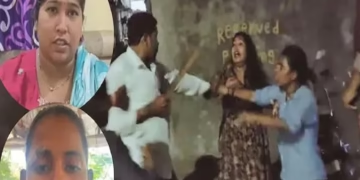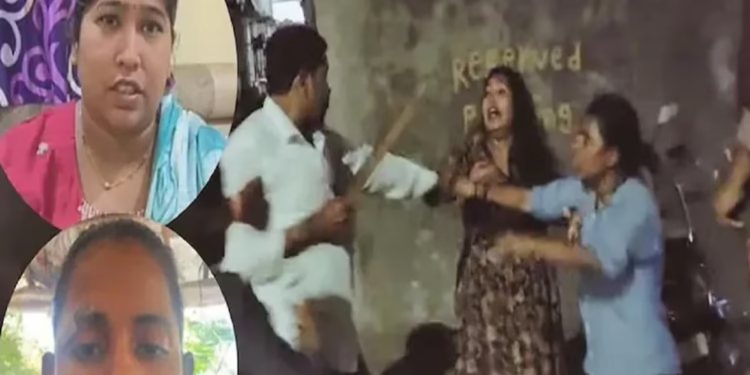In a shocking incident that has sparked outrage across social media, two young women were allegedly assaulted by three men in Dombivli West after they used the phrase “Excuse me” in English. The incident, which occurred while the victims were riding a two-wheeler, has raised serious concerns about growing intolerance and linguistic chauvinism in urban areas.
According to reports, the two women were navigating a narrow street in Dombivli West when they encountered three men standing in the middle of the road. As they politely asked the men to make way by saying “Excuse me,” the men allegedly took offense to their use of English.
Instead of stepping aside, the men are reported to have responded aggressively, saying, “Don’t speak in English. Speak in Marathi.” What followed was an alleged verbal altercation that quickly escalated into a physical assault. Witnesses claim the men assaulted the women in broad daylight and hurled abusive language, further threatening them for not using the regional language.

The incident has drawn strong condemnation from citizens, activists, and local leaders. Many have taken to social media to voice their anger and concern over the increasing instances of moral and linguistic policing. The assault has reignited debates around freedom of expression, safety of women, and the right to communicate in any language of one’s choice.
“This is not just about language. It’s about intimidation, entitlement, and the threat faced by women in public spaces,” said one social media user.
A complaint has been registered at the local police station. Authorities have confirmed that an FIR has been filed and the suspects are currently being identified through CCTV footage and eyewitness accounts. Police officials have assured strict action against the perpetrators.
“We are taking this matter very seriously. No one has the right to dictate which language a citizen should speak, and violence of any kind will not be tolerated,” a senior police official stated.
Maharashtra, with its rich linguistic and cultural heritage, has always seen a blend of languages, including Marathi, Hindi, and English. However, this incident has once again highlighted the tension that sometimes arises around language identity, particularly in urban centers where cultural diversity is more pronounced.
Activists are urging the government to initiate awareness campaigns to promote harmony and respect for linguistic freedom, and to ensure that no one feels threatened for speaking the language of their choice.















 Categories
Categories









